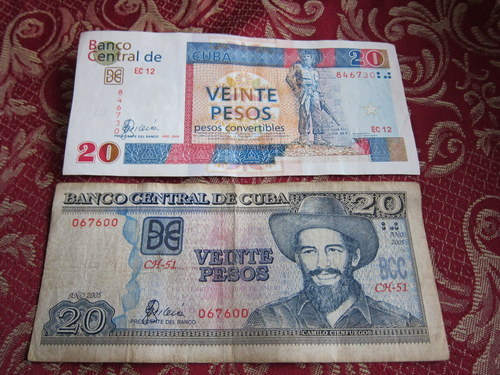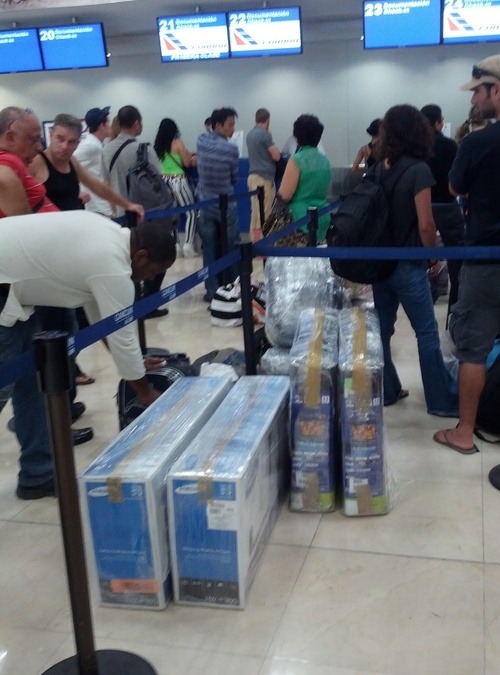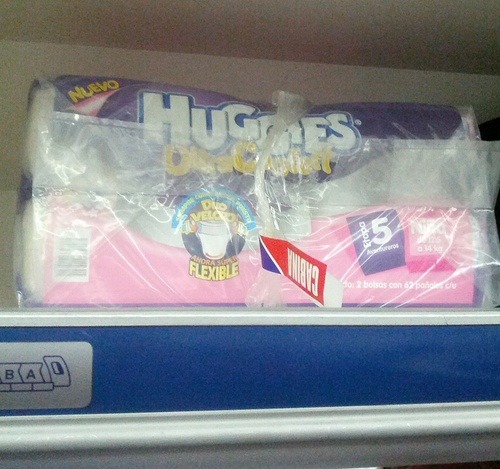At some point in recent decades, exports and foreign aid collapsed, thus presenting Cuba with the problem of how to raise the cash required to run the country. The answer was tourism, but not to suffer the indignity of having to use US dollars, they introduced a second currency pegged at 1:1 approximately: the Cuban convertible peso.
This is where it gets weird. Salaries are fixed and the state owns almost all businesses, paying employees wages in the national peso currency, typically around USD$20 - USD$30 per month. Doctors, lawyers, accountants get a little more, up to USD$35 per month equivalent in national pesos. This currency can be used for buying basic goods and services, like local busses or a pound of rice from a government store.
Tourists get issued convertible pesos, called CUCs (pronounced “kooks”). This currency is ostensibly used for only touristy things like hotels and expensive restaurants, but in practice any shop that sells anything remotely shiny, imported, or packaged in anything more than a flimsy plastic bag, will price exclusively in CUCs.
Thus, Cubans are paid mere peanuts in a worthless currency, and along with their monthly food rations can hardly afford to buy the everyday essentials that most take for granted: toothpaste, hot sauce, beer, etc. These things are normally available, but they’re just priced so far out of reach of a national salary that it’s almost a joke. To survive then, Cubans must get their hands on precious CUCs, and the only way that can be done is through direct contact with tourists and money sent in remittances by family living abroad.
The resulting situation is equal parts tragic and fascinating. The taxi driver who scours the streets picking up tourists could be a qualified doctor, whose monthly income is equalled by providing a single ride from the airport to central Havana.
At the airport in Cancún, passengers check their brand new flat screen TVs as part of the generous 40kg allowance.
Onboard the aircraft, the overhead bins are stuffed with essentials that are in short supply or unavailable in Cuba - like baby nappies.


